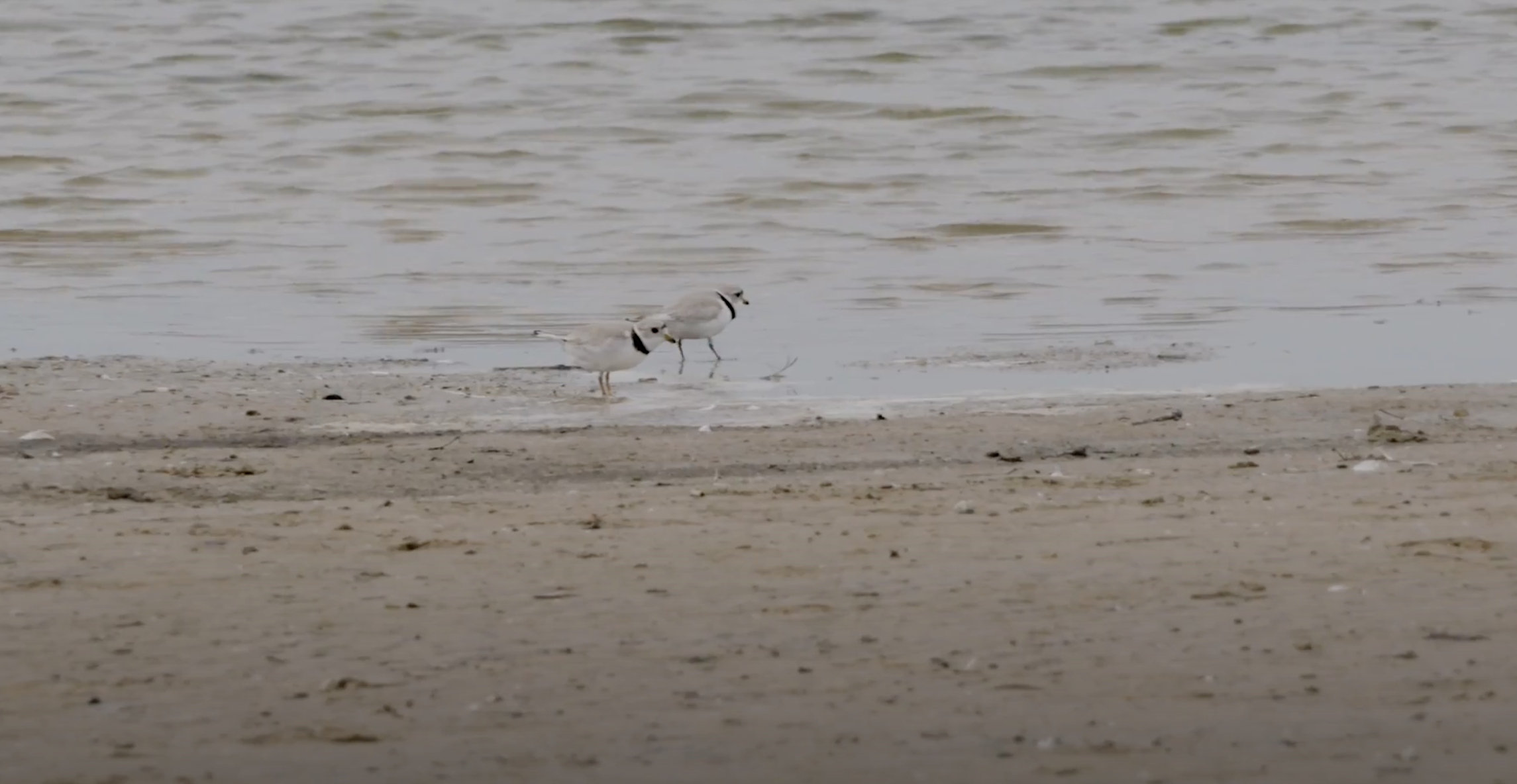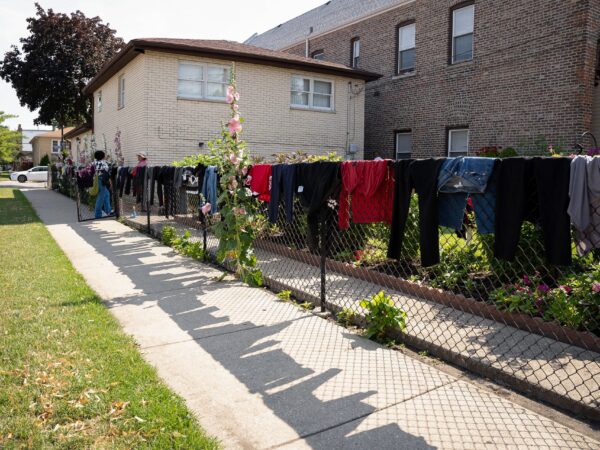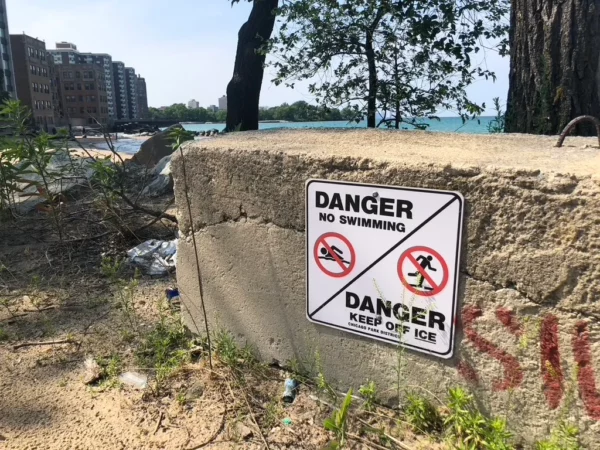
When Monty and Rose – Chicago’s beloved piping plover pair – first successfully nested at Montrose Beach, a popular place on the city’s north side, people celebrated the potential return of a dying bird species and were charmed by the adorable tiny birds.
The Great Lakes piping plover population has been a U.S. federally endangered species since 1986.
For four years, Monty and Rose returned to Montrose Beach.
Over that time, they built a legacy. They had chicks and grand-chicks. They inspired a children’s book, a documentary film, and various local brews. Illinois Gov. JB Pritzker even declared Nov. 18 ‘Piping Plover Day’ in their honor. The Chicago Park District added an additional 3 acres of protection to the Montrose Beach Dunes Natural Area for the birds. Great Lakes Now did a segment that debuted last summer, and we updated the segment at the end of 2021.
But this year, Rose still hasn’t shown up, and on Friday, Monty died.
Daniela Herrera, a volunteer monitor and birder, saw Monty behaving strangely and saw his last breaths, she told the Chicago Tribune.
“You watch the entire life-cycle of a bird,” Herrera said to the Tribune. “I’ll miss them. And they’ll have a special place in my heart, always.”
Monty was to turn five years old in June, and while that is roughly the average age of a piping plover, many people were hoping Monty would be among the plovers who make it further.
“Typically, five years is the average for a piping plover to be seen If they are successfully breeding within the Great Lakes population,” said Jillian Farkas, piping plover coordinator for the U.S. Fish and Wildlife Service. “We do have some real rock stars out there that have stuck around for 10 years, 15 years. But at the same time, sometimes we only get them back for one year. It’s really hit or miss, and that’s why every plover matters because we don’t know how long each one will be around for.”
Water levels, botulism, habitat loss, human activity and more all impede efforts to bolster the population. During the winter, the Great Lakes piping plovers also have less protections because their status at their wintering grounds is threatened and not endangered like it is when they’re in the Great Lakes region, according to Farkas.
“We have seen other threats through the years like predators that seemed more likely, like peregrine falcons,” said Bob Dolgan, a Chicago-based filmmaker who has been documenting the progress of Monty and Rose, and their offspring, over the years.
The Lincoln Park Zoo is determining Monty’s cause of death. The zoo did not respond to Great Lakes Now’s requests for comment. They may be able to determine cause of death within a week, according to Dolgan.
After, Monty will be donated to the Field Museum, according to the remembrance written by Tamima Itani, vice president of the Illinois Ornithological Society.
“The impact they have made on all involved and on the community at large will live on for years to come,” Itani said in the remembrance.
Nish (son of Monty and Rose) and Nellie (his nest mate) and two of Nish and Nellie’s children have also yet to be spotted this year.
Rose hasn’t been seen since February, while Nish hasn’t been seen since November, Farkas said.
“There’s also been years where we don’t get an adult back and then the next year they show up,” Farkas said. “But that’s not super common.”
Plovers, especially younger ones, are still migrating though, so it’s possible that the birds might be spotted in the region, Farkas added.
“It’s why our protection and monitoring efforts are so important, because we don’t know who’s going to come back in a given season,” she said.
“Monty and Rose,” Dolgan’s film charting their journey and settling in Chicago, was initially meant to be the end of his work making piping plover films. But he said talk of a memorial service has him reconsidering.
“I had expected to be finished making piping plover films, but I feel there might be a pretty big chapter missing if I leave it like this,” he said.
Catch more news at Great Lakes Now:
Monty and Rose: Those Chicago piping plovers, where are they now, what are they doing?
Birds on Film: Filmmaker Bob Dolgan talks about Chicago’s piping plovers with Great Lakes Now
Featured image: Two piping plovers named Monty and Rose decided to nest on Montrose Beach just north of downtown Chicago. (Great Lakes Now Episode 1026)




